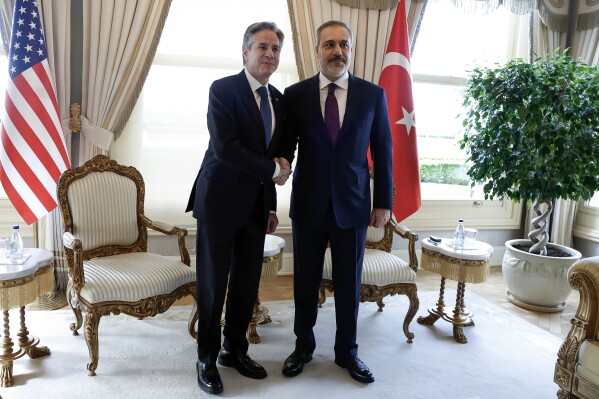Russia's 'Inability' to Establish Air Superiority Undermining OperationsâUK
Russia is again showing that it is not capable of achieving air superiority in Ukraine, much like it did at the start of its full-scale invasion there, British defense officials have said.
The U.K. Ministry of Defense (MOD) noted on X, formerly Twitter, the significance of the downing on December 22 of three Russian Sukhoi Su-34 jets over southern Ukraine. There, Moscow's tactical air power helped attack Ukraine's bridgehead in Krynky on the Russian-controlled eastern bank of the Dnieper River.
A U.S.-made MIM-104 Patriot air defense system had downed the planes, according to Russian military bloggers. Ukraine also said that, on December 24, its armed forces destroyed another two Russian warplanes, a Su-30 and a Su-34, over Odesa and Mariupol fronts by the Black Sea. Newsweek has as yet been unable to verify either side's claims.
In the wake of the losses, Russian Aerospace Forces almost completely stopped crewed operations in the south of Ukraine, the U.K. MOD said on Saturday. Newsweek emailed the Russian Defense Ministry on Saturday for comment about the U.K. MOD assessment, which emphasizes Kyiv's gains and Moscow's losses.
"This once again demonstrates that Russia's inability to establish air superiority in the early stages of the Russia-Ukraine war continues to undermine their daily operation," said the MOD.
This lack of air support may have contributed "to the failure of an attempt by Russian Ground Forces' 18th Combined Arms Army to clear the bridgehead," British officials said. Over the last few days, Russia has increased air strikes around the bridgehead, "but at a lower level than before the shootdowns."
Although the Ukrainian Foreign Ministry said on X in November that its forces had consolidated positions in strongholds on the Dnieper River, Ukraine's marines have questioned the operation around the bridgehead and spoken of high losses.
Some have told Western media outlets like The New York Times and The Washington Post that the operation is futile, with many struck down on the river banks or in the water before they even reach the other side.
Open-source intelligence and military analyst Emil Kastehelmi told Newsweek last month that it was not clear what Ukraine's goals were. "While the operation itself may be somewhat questionable from the Ukrainian perspective, the Russians have not been able to crush the bridgehead," Kastehelmi said.
"Instead, they are continuously attacking there with limited forces, suffering constant equipment losses," he added. "There is still a possibility that the Ukrainians might try to open new bridgehead elsewhere and broaden the operation during winter."
At the end of December, the independent think tank Institute for the Study of War (ISW) had said that, following their aircraft losses, Russian forces were "concerned about Ukrainian air defense capabilities" and were limiting manned aviation near Russian-occupied Crimea, particularly in the northwestern Black Sea region.
Disclaimer: The copyright of this article belongs to the original author. Reposting this article is solely for the purpose of information dissemination and does not constitute any investment advice. If there is any infringement, please contact us immediately. We will make corrections or deletions as necessary. Thank you.

